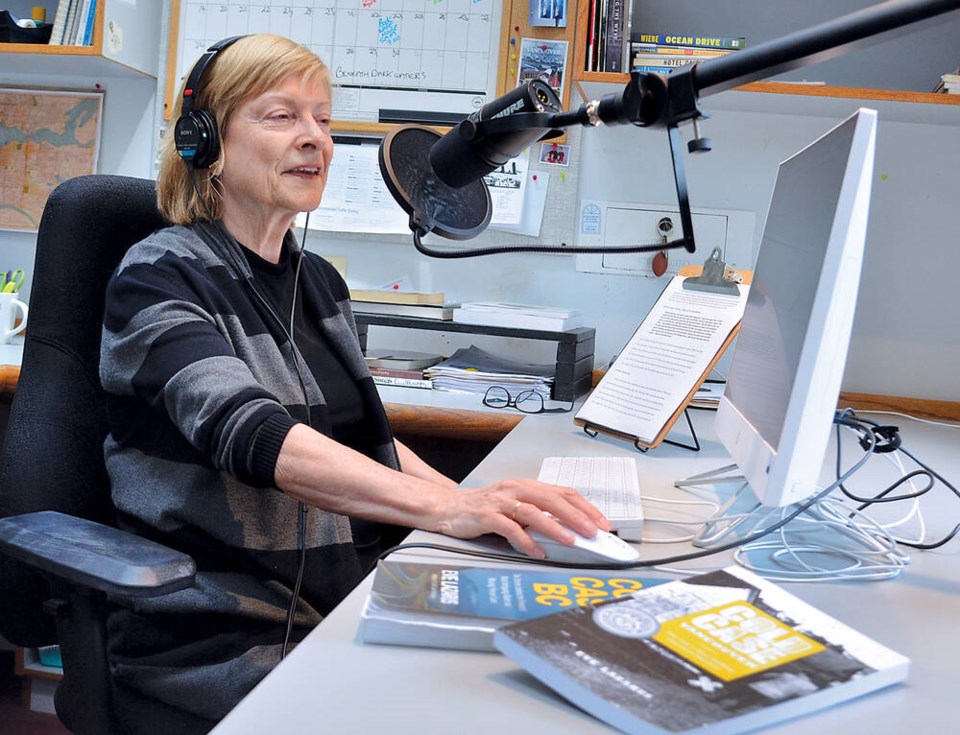There are few unsolved Vancouver murders that haven’t caught the attention of North Vancouver writer and podcaster Eve Lazarus.
Lazarus – a writer, reporter and arguably investigative sleuth herself – has made a name writing and blogging about the city’s most notorious unsolved killings, many of them dating back to a grittier time in Vancouver’s history.
In recent years, Lazarus has also grown a loyal following for her true crime podcast, Cold Case Canada.
But for Lazarus, one of the most intriguing – and heartbreaking – stories she’s come across involved a series of cold case killings that had actually been solved.
Between April 1988 and August 1990, six sex trade workers from Vancouver’s Mount Pleasant neighbourhood were killed and their bodies dumped in laneways. Officially, their murders remain unsolved.
But in a strange twist of fate, this was one case where detectives were convinced they had caught the killer, Lazarus revealed. The catch: the suspect had died before he could be charged. And nobody had ever told the victims’ families.
Only Canadian crime and justice finalist
Now, the podcast episode that details that case, The Alley Murders, has been recognized as a finalist in the crime and justice category of the Webby Awards, which recognize outstanding work from around the internet.
That’s a huge honour for the local podcaster, whose work has been shortlisted alongside four other podcasts, including one produced by broadcasting network Al Jeezera.
Lazarus’s podcast is the only Canadian episode and the only independent podcast among the five finalists.
A winner in each category will be selected by a panel of expert judges, along with a people’s choice award for the podcast with the most public votes in each category. Voting on the Webby website is open until this Thursday, April 18.
Like some of her other podcast episodes, the story of The Alley Murders came to her via her Facebook page Cold Case Canada, after Lazarus noted that some of those murders had been added to the Vancouver Police Department’s cold case web page.
That was when two retired Vancouver police officers told Lazarus the surprising information those cases had been solved – but never officially acknowledged or shared with families of the victims.
“It was just heart wrenching,” said Lazarus. ”They’d solved it and the families had never been told.”
Families haunted by unanswered questions
When Lazarus sets out to investigate a cold case, she makes a point of talking to the families of the victims first. Most are haunted by questions they’ve never had answered.
“For the families it just doesn’t go away,” she said. “It doesn’t go away after six months, or 20 years or 50 years or in some cases 70 years. These people still want answers.”
Lazarus is also careful in her crime podcasts to acknowledge the victims as more than murder statistics.
Too often in the true crime genre, “they just get dehumanized,” she said.
In the case of the alley murders, the victims were young women who had become addicted to drugs and got involved in sex work. But they were also sisters and mothers and good friends to each other in a tight knit community of the day.
“I try to talk about them as humans,” she said. “It’s a huge responsibility.”
Unlike big league podcasters, Lazarus produces all her podcasts solo from her North Vancouver home. At the beginning, her "sound booth" consisted of a comforter draped over beach umbrella and a stand-up microphone. “I couldn’t do it on garbage day,” she said with a laugh. Since then she’s upgraded her equipment, along with teaching herself to use audio editing software with YouTube tutorials.
Lazarus said she’s realized that reading her words has also changed the way she writes.
“And it really does make a difference.”
Ancestry database DNA a game changer
Most of Lazarus’s true crime stories happened years in the past. At one time, that would have made the chances of solving them remote.
But the advent of forensic genetic genealogy – using vast databases of DNA uploaded by people looking for their ancestry and stored by companies like Ancestry123 – has been a recent gamechanger, she said. Two years ago, it was just that kind of match that led to the identification of Stanley Park’s murdered Babes in the Woods – a question that had dogged investigators since the 1950s and “which we never thought would happen,” she said.
Lazarus hasn’t given up on other kinds of historical writing. Currently, she’s working on a book about the fates of surviving passengers from the CPR liner Empress of Ireland which sank in 1914 off the mouth of the St. Lawrence.
But true crime has a special place in her heart. “They’re amazing stories when they’re done properly,” she said. “I can’t go to sleep without listening to them. They’re like my bedtime story.”



